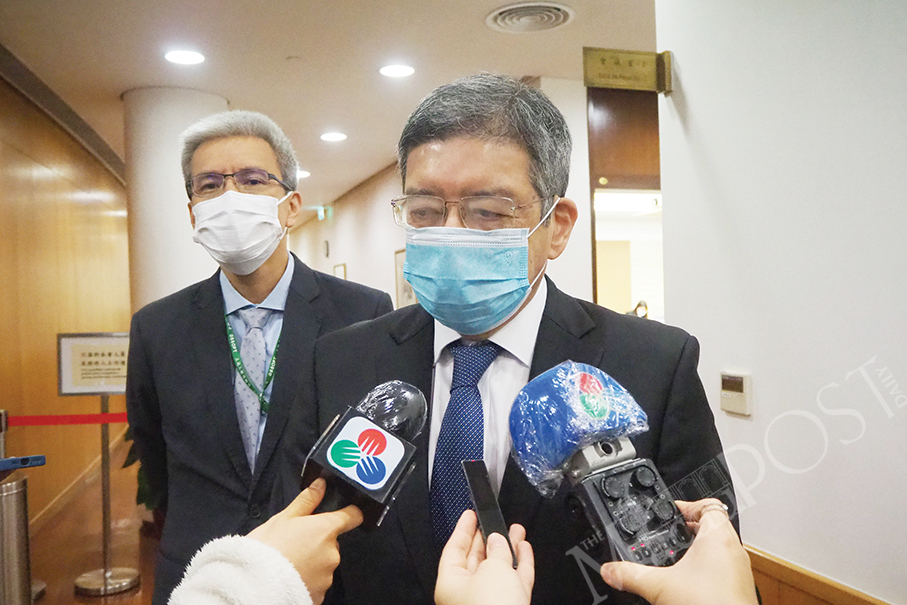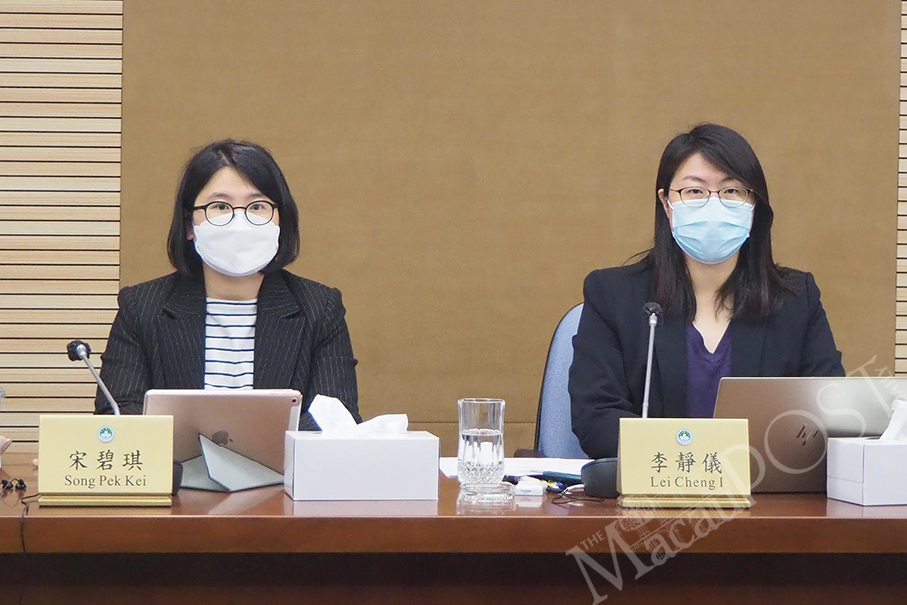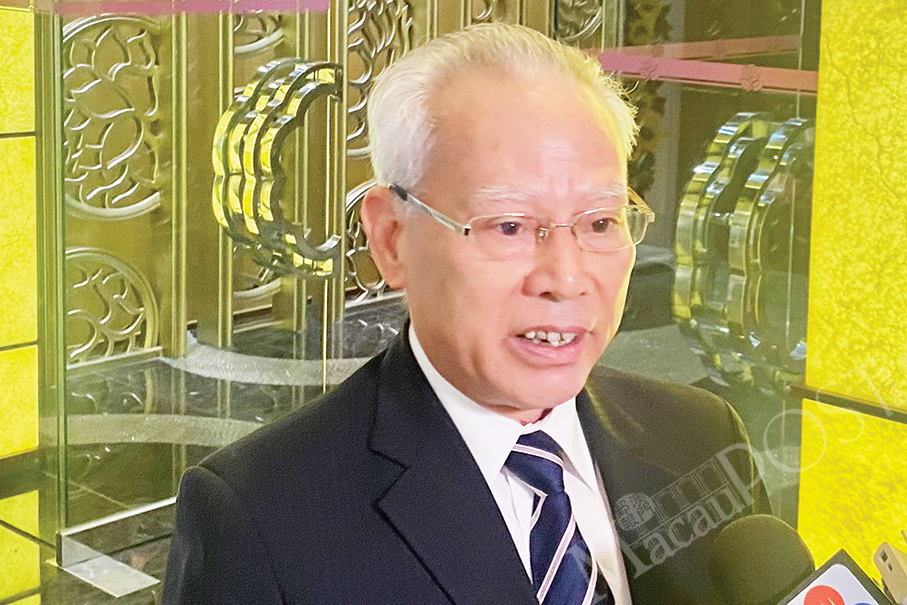Secretary for Transport and Public Works Raimundo do Rosário said yesterday that it will not be mandatory for repair and maintenance companies of the city’s lifts, escalators and travellators to take out civil liability insurance.
Talking to reporters on the sidelines of yesterday’s meeting of the legislature’s 1st Standing Committee reviewing a government-initiated bill regulating the operation and safety of elevators, escalators, travellators and similar devices, Rosário said that the respective article – which would have made it mandatory for such companies to take up civil liability insurance – will be removed from the bill, following a discussion between government officials and representatives from the Macau Insurers’ Association on Wednesday.
Directly-elected lawmaker-cum-unionist Ella Lei Cheng I, who heads the Legislative Assembly’s (AL) 1st Standing Committee, chaired another closed-door meeting to review the bill yesterday, which lasted for two hours, and was attended by Rosário.
The current version of the bill proposes that repair and maintenance companies are obliged to take out civil liability insurance to cover bodily injury or damage to property suffered by third parties as a result of using a lift, escalator, travellator or similar device.
Lei said that some committee members were concerned about the practicality of civil liability insurance, such as whether such insurance products specifically for lifts are available in the market, as well as concerning the insurance coverage and the required amount.
Lei quoted the government officials as explaining that the legislative intent of adding civil liability insurance to the bill was to cover injuries caused third parties using a lift or similar device through insurance.
Lei added government officials pointed out that there are currently no insurance products for lift equipment in the market and, therefore, it would be the people in charge to decide whether to take out public liability insurance according to their needs, which might also cover any injuries caused by accidents in lifts and similar devices.
According to the bill, the term “people in charge” refers to the condominium owners of a building, its property management company, or its condominium owners’ management committee – depending on the situation of each building.
Lei said that the committee agrees with the government that it is difficult for the repair and maintenance companies to take out civil liability insurance. She underlined that in Hong Kong and the mainland there is no mandatory civil liability insurance specifically for lift equipment maintenance.
The bill also proposes to divide the lift maintenance contract into two, which is between the people in charge of the lifts and the repair and maintenance companies, i.e., a basic maintenance contract and a full maintenance contract.
According to the bill, both will cover maintenance for a safe working condition of the lift equipment, while the latter will also cover inspection, repair or replacement. The bill does not require the respective entities to fully replace their current basic contracts with a full maintenance contract.
Lei quoted the government officials as saying that there are limited requirements for the maintenance contracts in the bill and the supplementary administrative regulations, which allows the people in charge to have more flexibility when choosing the type of the lift maintenance contracts for their buildings.
According to previous local media reports, there are about 10,000 lifts, escalators, travellators and similar devices in Macau.

Secretary for Transport and Public Works Raimundo do Rosário (front) talks to reporters on the sidelines of yesterday’s meeting of the legislature’s 1st Standing Committee, as Lands, Public Works and Transport Bureau (DSSOPT) Deputy Director Lai Weng Leong looks on. Photos: Ginnie Liang

Lawmaker-cum-unionist Ella Lei Cheng I (right), who chairs the legislature’s 1st Standing Committee, talks to reporters after yesterday’s closed-door meeting of the committee reviewing the government’s telephone tapping bill, as the committee’s secretary, Becky Song Pek Kei, looks on.








